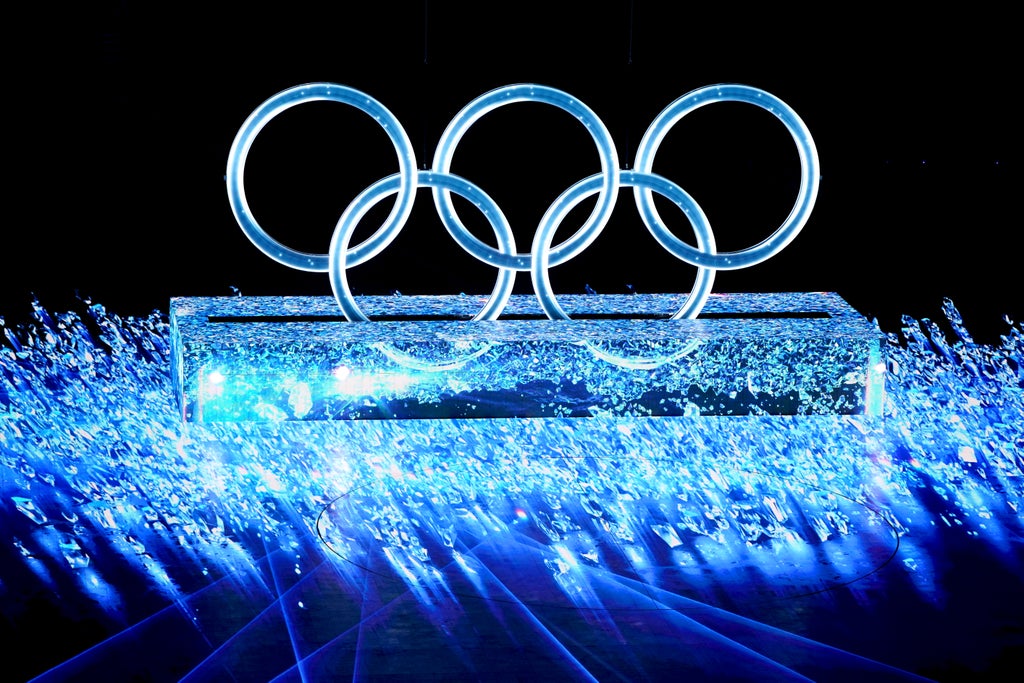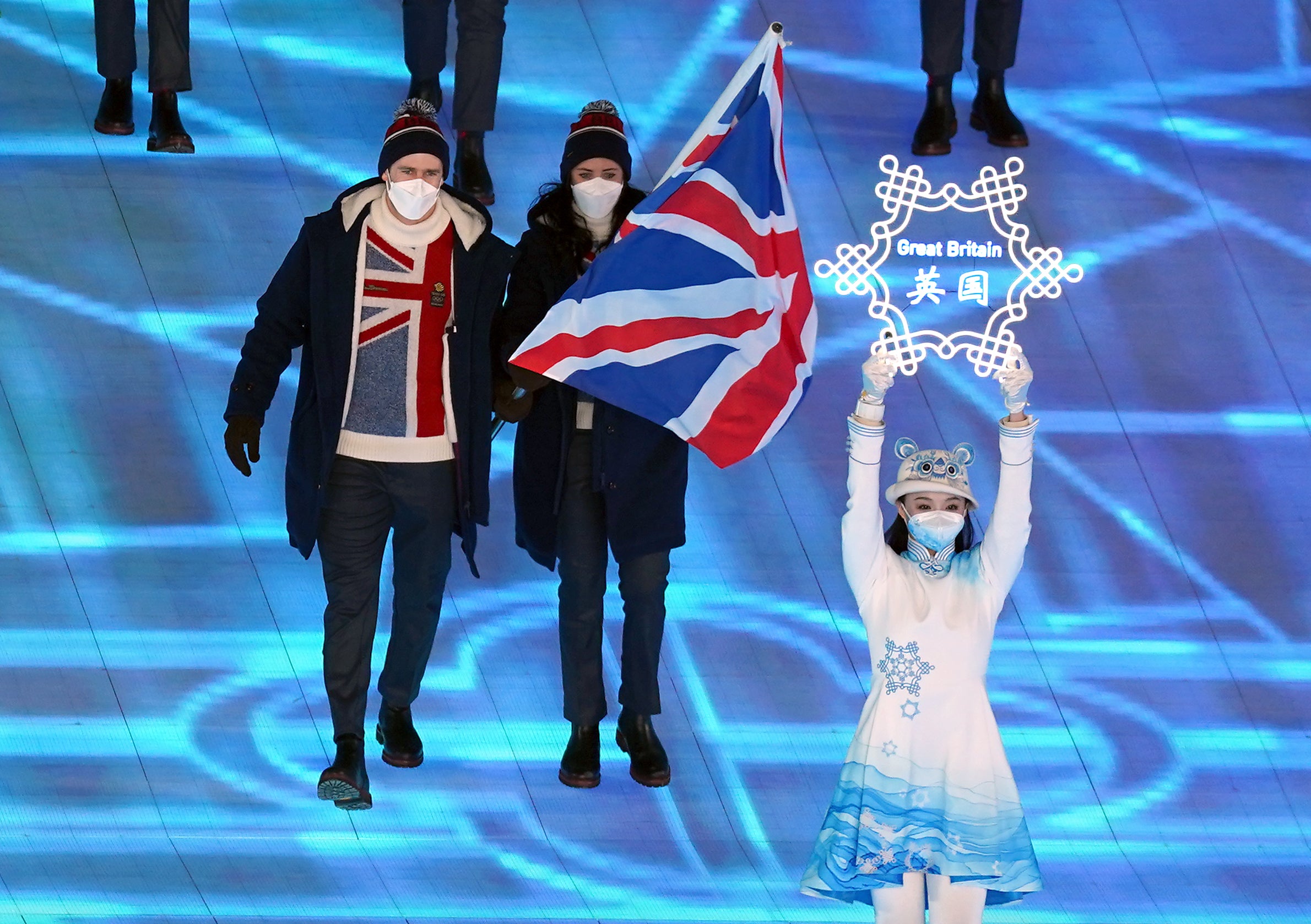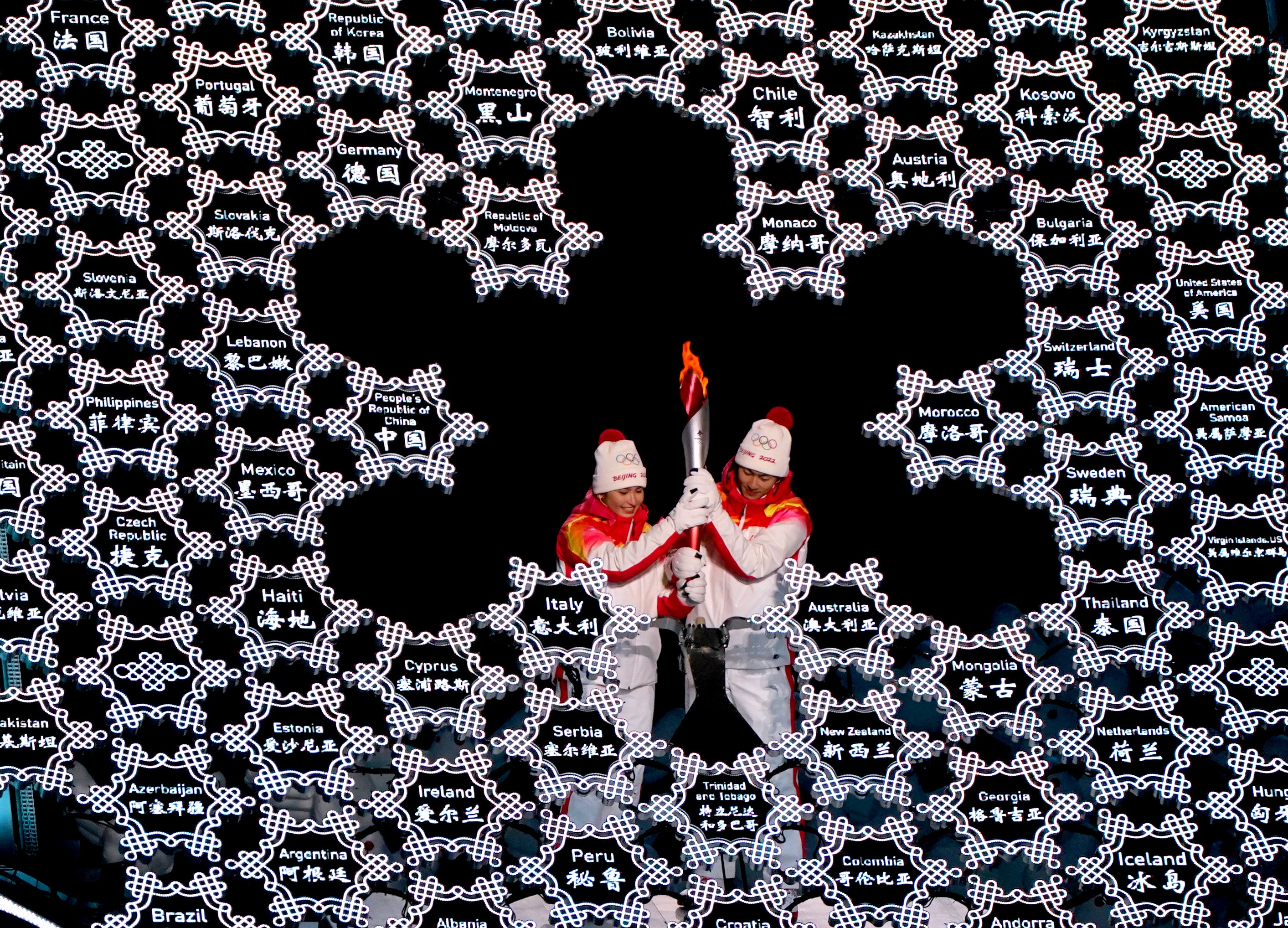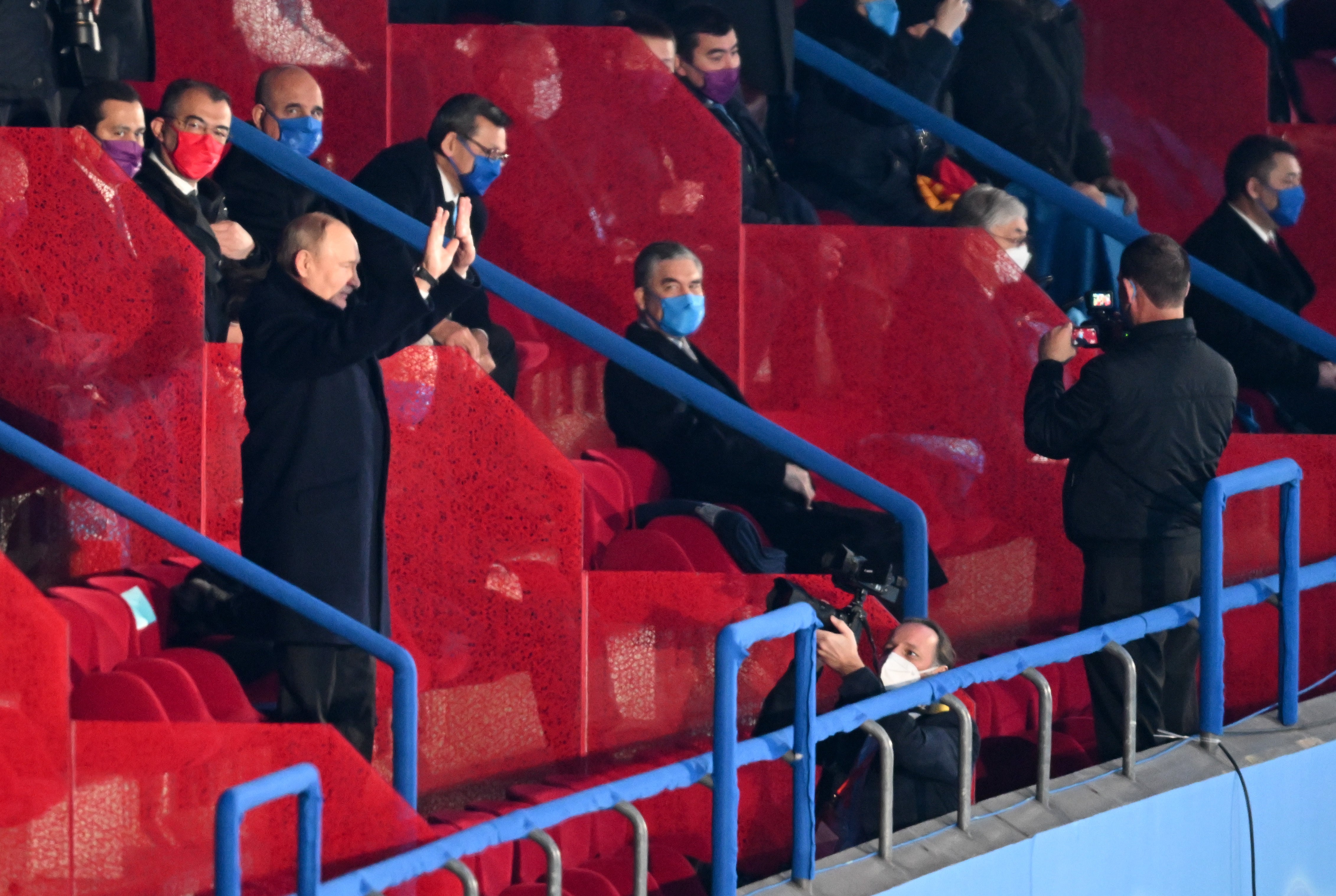
Fourteen years ago in Beijing’s Bird’s Nest Stadium, ninety thousand fans roared Usain Bolt down the home straight to shatter the men’s 100 metres world record and instantly establish one of the Olympic Games’ most indelible images.
On Saturday night in the Chinese capital, memories of Bolt’s 9.69 super-charge remained fresh in the memory, but the masked officials and plunging temperatures told a different story, of a Games that threaten to be remembered for all the wrong reasons.
Politics and a pandemic have blighted the build-up to the first Winter Games to be staged in the same city as its summer counterpart, albeit a forbidden one, consigned to a closed-loop bubble sealed off by security agents in hazmat suits.

For all the rules banning regular ticket sales, the Bird’s Nest was roughly half full of quarantined spectators for a constricted ceremony, clocking in at just over two hours, making it the shortest Olympic opening event for more than 40 years.
“Simple, safe, wonderful” was the message, and the ceremony certainly succeeded as a colourful artistic spectacle, a 11,600-square metre LED ice screen forming a basis to the spectacle that matched the millions of cubic tonnes of fake snow stockpiled on the pistes of Zhangjikou.
Chinese President Xi preceded a lavish firework display by declaring the Games open, before a low-key cauldron-lighting by two junior members of the current Chinese team.
Yet no amount of pomp can possibly extinguish the backdrop of allegations of genocide against Uyghur Muslims in Xinjiang, nor fears for press freedom that led many travelling delegations to pack burner phones along with their bobble hats.

Throw in the continued concerns over the well-being of tennis player Peng Shuai, and it was an occasion far removed from the lavish and welcoming jamboree that greeted the world’s best athletes in 2008.
A diplomatic boycott led to officials from many nations, including the UK and US, staying away, while Russian President Vladimir Putin was present, albeit captured apparently asleep on camera when the Ukrainian delegation entered the stadium.
Inevitably, an asterisk will be attached to all that transpires in the next two weeks as the Olympics faces its greatest challenge since the former International Olympic Committee president Avery Brundage declared the establishment of the winter version as a “deplorable mistake”.
For all the athletes, including British duo Eve Muirhead and Dave Ryding who proudly carried their respective national flags into the stadium on Saturday night, there were others who will have watched the ceremony on a flickering TV screen inside a quarantine hotel.
By the time of the opening ceremony Britain, fortunately, had steered all of their arriving delegation safely through the rigid protocols, and more of their 50-strong number marched around the Bird’s Nest than had done at the Tokyo opening ceremony seven months ago.
Britain bullishly expects to threaten or even exceed its five-medal haul from each of the last two Winter Games, led by a triple curling challenge, a buoyant bobsleigh squad and even an historic alpine World Cup winner in Ryding.
Returning champions Chloe Kim and Shaun White will light up the snowboarding programme while the quest for quads will provide a headline act in a figure skating event featuring 15-year-old Russian superstar Kamila Valieva and the renewal of the storied rivalry between Yuzuru Hanyu and Nathan Chen.

At the other end of the spectrum will be the unlikely participants who have come to shape the Winter Olympics every bit as much as their illustrious counterparts, including skiers from Haiti and Eritrea, and Nathan Crumpton, a skeleton athlete from American Samoa who was the latest to parade topless in spite of temperatures touching minus five degrees.
The moments they create are sure to eclipse the bluster of Brundage and his current successor Thomas Bach, sustaining that ever-so-slightly anarchic Winter Olympic spirit in a manner no amount of grandiose posturing could ever hope to match.
They may prickle our collective conscience as painfully as the daily PCR tests. But the hope must still be that the Beijing Winter Games will create moments that can live alongside Bolt’s in the Olympic pantheon.







